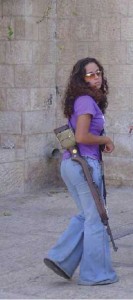Suzan Crane finds herself enmeshed in the safety net of Tel Aviv during the recent spate of violence between Israel and Lebanon, but then the net is torn asunder. (Originally published in Untamed Travel, November 2006. Photo by Rafi Frankel. )
 “Tel Aviv exists in a bubble,” my friend Rei declared as he darted out the door to visit his brother in the hospital. Israel’s war with Lebanon was about two weeks old and Rei’s younger brother had been injured. But aside from the ubiquitous news reports, Tel Aviv seemed far removed from the battles raging in the north, only a few hundred kilometers away from the nation’s hip, modern capital. The wide Mediterranean beaches girding the city were still packed with sunbathers, Shenken Street still teemed with hungry shoppers, and the spirited nightlife continued even as towns such as Haifa and Galilee were getting pounded.
“Tel Aviv exists in a bubble,” my friend Rei declared as he darted out the door to visit his brother in the hospital. Israel’s war with Lebanon was about two weeks old and Rei’s younger brother had been injured. But aside from the ubiquitous news reports, Tel Aviv seemed far removed from the battles raging in the north, only a few hundred kilometers away from the nation’s hip, modern capital. The wide Mediterranean beaches girding the city were still packed with sunbathers, Shenken Street still teemed with hungry shoppers, and the spirited nightlife continued even as towns such as Haifa and Galilee were getting pounded.
Being in Israel at a time when Middle East tensions and global alarm were peaking was a surreal experience. Although harboured in the relative safety of Tel Aviv, I received a glut of emails from friends and family imploring me to “get out”. It would’ve been stupid to explore the rolling hills and verdant valleys of Israel’s northern region; but I did get to behold the aquamarine buouyancy of the fabled Dead Sea – the lowest point on earth above the water’s surface – and the sacred relics and biblical sites of Jerusalem.
It was not a coincidence that I found myself in the Holy Land – where I had long hoped to connect with my heritage and religious roots – at this crucial time in history. The experience explained a lot about the national psyche in a country where uniform-clad, machine gun-wielding, post-adolescents are an omnipresent sight and violence and piety co-exist. At first the contradictions struck me as bizarre, but I soon grew accustomed to a bus full of kids brandishing a gun in one hand and a mobile phone in the other. I couldn’t help but wonder how it must impact both boys (serving three years) and girls (two years), who must relinquish the security of family for the rigours of military service. It shed light on the mutinous behavior exhibited by the battalions of young, recently emancipated Israelis who flock to India and South America in search of drugs, sex and a perpetual party.
Having temporarily departed Israel while the war was still raging, I returned a few weeks later to catch my flight to Spain. One night was just long enough to sense the increased tension and changed mood in the country. Whereas it took 10 minutes to cross the border between Aqaba, Jordan and Elat, Israel just a month earlier, this time I was detained for nearly six hours as I crossed in the north. Even in Tel Aviv the “bubble” seemed to have burst, as long-range rockets began to strike the city’s peripheral areas.
On this night, my friends Sharon and Amit evacuated their apartment as locals braced themselves for a forecasted onslaught. “If you hear sirens don’t worry. Just get up and leave the apartment,” Yuval and Vered, the couple with whom I was staying, said nonchalantly. After all, for them this was the reality of living in Israel. They’d been through this before; sirens, suicide bombers and gun-toting youths have been with them since birth.
For now the war is over and life is back to ‘normal’ in Israel’s throbbing cities, scenic mountains, beaches and desert communities. Normal, if you consider normalcy always being on the brink of warfare. With all its attractions and history, the only thing the country lacks is enduring peace.
To quote Pope John Paul II in an Apostolic Letter (“Redemptionis Anno”): “I think of and long for the day on which we shall be so ‘taught by God’ (John 6:45) that we shall listen to his message of peace and reconciliation. I think of the day on which Jews, Christians and Muslims will greet each other in the city of peace with which Christ greeted the disciples after the Resurrection: ‘Peace be with you’ (John 20:19).”




 Global Gypsy Collection ©2010 - 2011
Global Gypsy Collection ©2010 - 2011